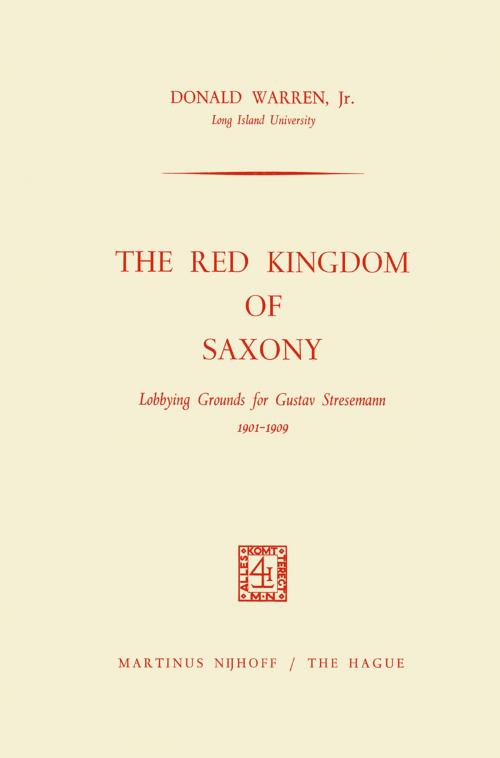| Author: | Donald Warren Jr | ISBN: | 9789401510172 |
| Publisher: | Springer Netherlands | Publication: | December 6, 2012 |
| Imprint: | Springer | Language: | English |
| Author: | Donald Warren Jr |
| ISBN: | 9789401510172 |
| Publisher: | Springer Netherlands |
| Publication: | December 6, 2012 |
| Imprint: | Springer |
| Language: | English |
The old saw, "Gennany is the heart of Europe, Saxony the heart of Germany," Treitschke derided as that "favorite, self congratulatory phrase" parroted by reactionary Saxons. His ridicule is understandable. He was born a Saxon, yet adored Prussia, which forced his native kingdom into the Kaiserreich. Historians of this century, also loyal in a sense to the German Empire, have dismissed internal affairs of the federal states as parochial. Thus Saxony, though wracked by political agitation more severe than in any other German state during the last two decades of the Wilhelmian era, has been generally looked upon as peripheral to the great national issues of the day. Solid as Treitschke's grounds may in his time have been for scoffing at the anachronism of Saxon particularism, recent history has shown that Saxony was after all the heart of Gennany in more than the geographic sense. It was by far the most Lutheran region of Gennany and was often called the "model land" of Liberalism, a way of life not to be confused with liberal democracy in the M usterliindle, Baden, or in the Kingdom of Wiirttemberg. In Land Sachsen the small independent entre preneur did not vanish from the scene during the industrial boom of 1871-g0 as he did in Rhineland-Westphalia.
The old saw, "Gennany is the heart of Europe, Saxony the heart of Germany," Treitschke derided as that "favorite, self congratulatory phrase" parroted by reactionary Saxons. His ridicule is understandable. He was born a Saxon, yet adored Prussia, which forced his native kingdom into the Kaiserreich. Historians of this century, also loyal in a sense to the German Empire, have dismissed internal affairs of the federal states as parochial. Thus Saxony, though wracked by political agitation more severe than in any other German state during the last two decades of the Wilhelmian era, has been generally looked upon as peripheral to the great national issues of the day. Solid as Treitschke's grounds may in his time have been for scoffing at the anachronism of Saxon particularism, recent history has shown that Saxony was after all the heart of Gennany in more than the geographic sense. It was by far the most Lutheran region of Gennany and was often called the "model land" of Liberalism, a way of life not to be confused with liberal democracy in the M usterliindle, Baden, or in the Kingdom of Wiirttemberg. In Land Sachsen the small independent entre preneur did not vanish from the scene during the industrial boom of 1871-g0 as he did in Rhineland-Westphalia.















